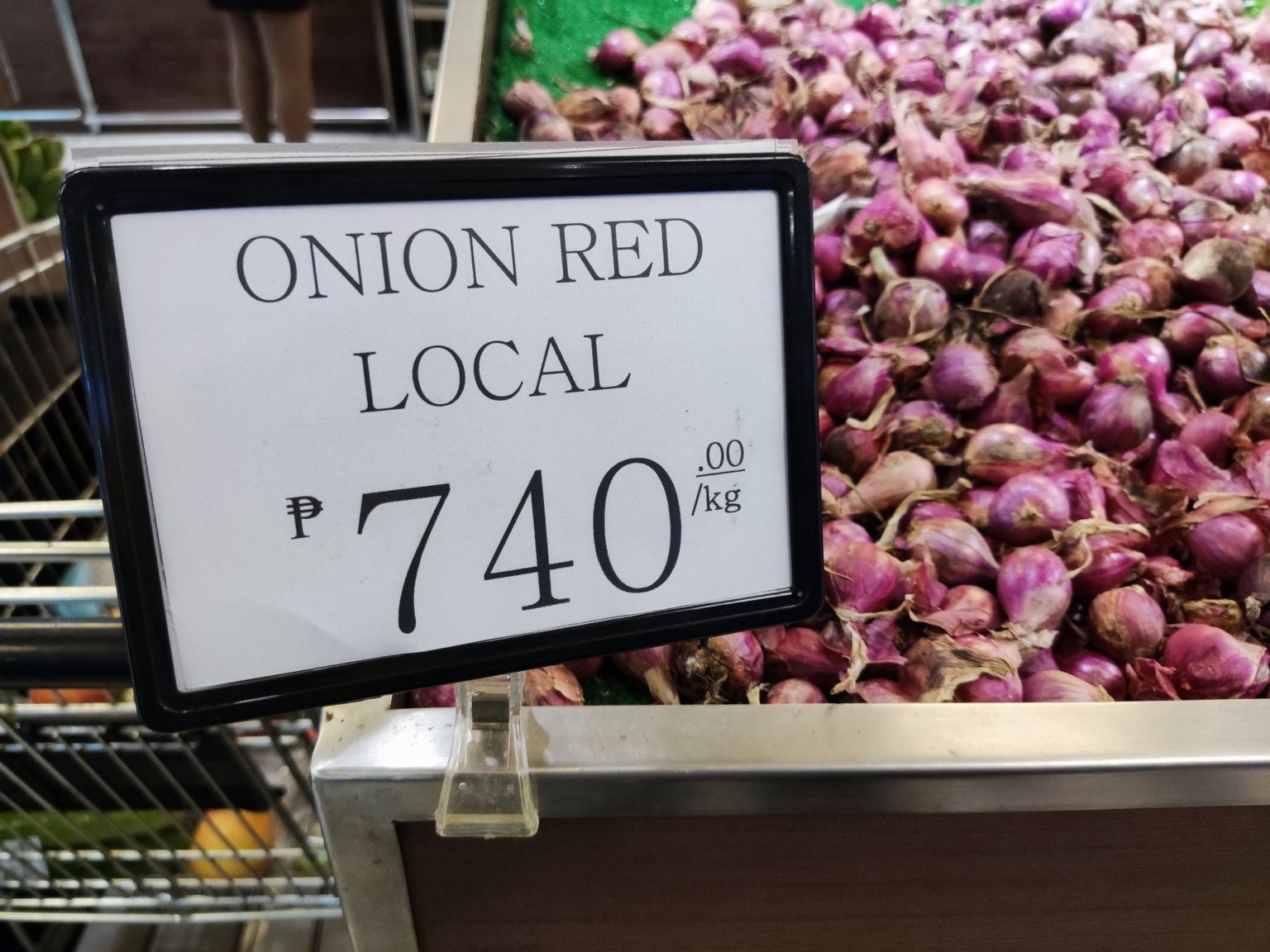[Taiwan Immigrants’ Global News Network] In Manila shops, onion prices have risen to as much as 800 pesos (US$14.67) per kilogram in recent months, making them more expensive than chicken or pig. While many families have stopped eating them since they are already dealing with the greatest inflation in 14 years, several establishments have removed the key component from menus.

Filipino couples make a bouquet with a bunch of onions Photo reproduced from ABS_CBN
Filipino cuisine is often cooked with onions and sugar, and it is also a must for all kinds of fried dishes. Now onions, a commoner food, have become an unaffordable luxury, and there are constant complaints on the Internet.
Philippine authorities are trying to bring the price back to less than 200 pesos per kilogram, and urgently approved the import of 21,000 tons of onions. The folks strongly demanded to crack down on dealers and traders to drive up speculation, but the short-term price still did not fall back.
In the past, the shortage of basic grains such as sugar, salt, and white rice in the Philippines caused prices to soar, which reflected the inadequacy of agricultural policies, low crop yields, high costs, insufficient investment in irrigation and agricultural machinery, and lack of refrigeration equipment and industrial roads. Coupled with the threat of rainy and typhoon in the Philippines, although the number of farmers in the Philippines accounts for a quarter of the total population, they can only contribute 10% of the overall GDP. Moreover, most farmers are tenant farmers, with an average age of 57 and insufficient output relies on imports.
Read more: NIA to Publicize "Expanded Overstayers Voluntary Departure Program” at Taipei Main Station

Filipinos take to the streets to protest soaring prices of onions and agricultural products Photo reproduced from ABS_CBN
Economists pointed out that importing onions now will coincide with the main local harvest season in February. Once the harvest and imports enter the market at the same time, the price may plummet, which is another shock to farmers.





.png)
